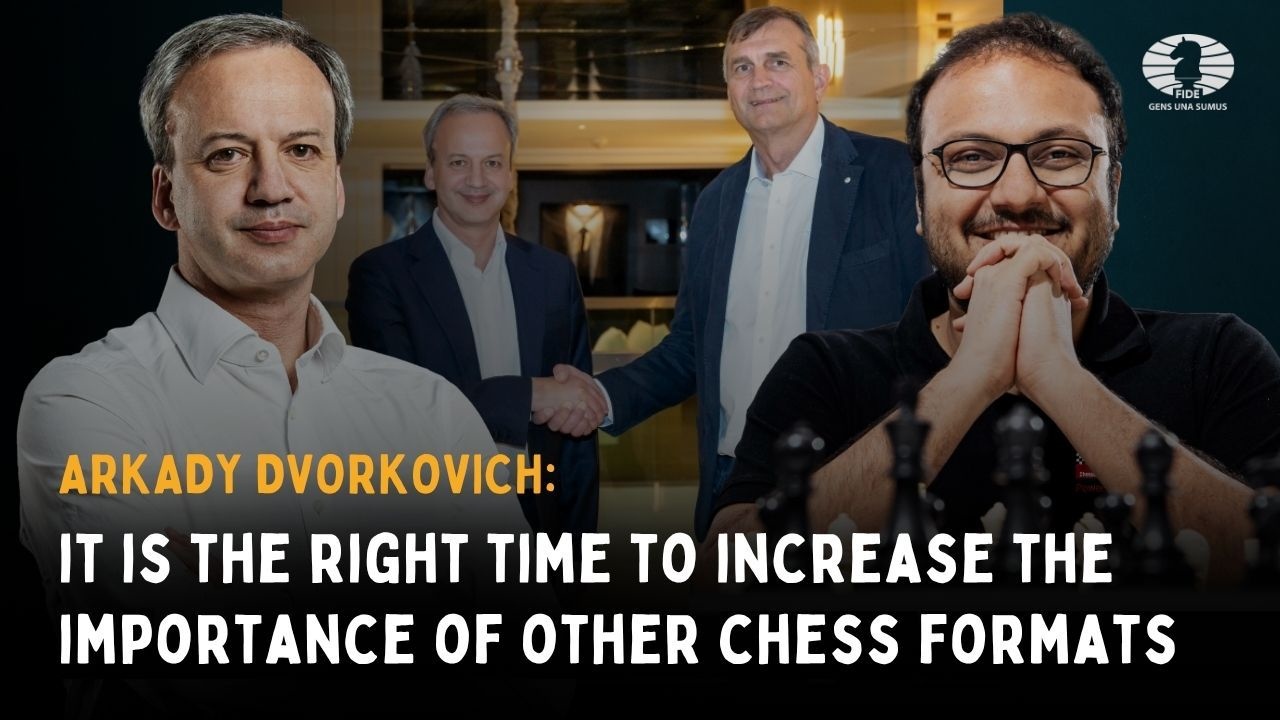
The FIDE President discussed the Total Chess World Championship Tour, changes to the 400-point Rating rule, the success of the Year of Social Chess, and the state of FIDE.
In an online interview with Sagar Shah of ChessBase India, one of the leading chess media outlets, Arkady Dvorkovich highlighted the importance and the role of the new Total Chess World Championship Tour which was recently announced by FIDE.
“FIDE has for a long time been thinking about a new format where we can combine different time controls and adjust to the reality of the faster, digital world, but also reflect the existing high interest in classical and blitz chess. We were happy that Norway Chess came up with the initiative to do something like that. It was the right time, the right moment and the right partners. From the very beginning, we had a clear understanding that we can do it only together,” Dvorkovich said.
“We do believe this [project] will bring many new spectators and excitement to the players. Most of the top players believe that it is a very interesting format”.
Dvorkovich emphasized FIDE’s position that the classical world championship title “is the most important one… but we believe it is the right time to increase the importance of other formats as well”.
The new partnership with Norway Chess is a long-term commitment, based on an eight-year contract with an option to renew for an extended period.
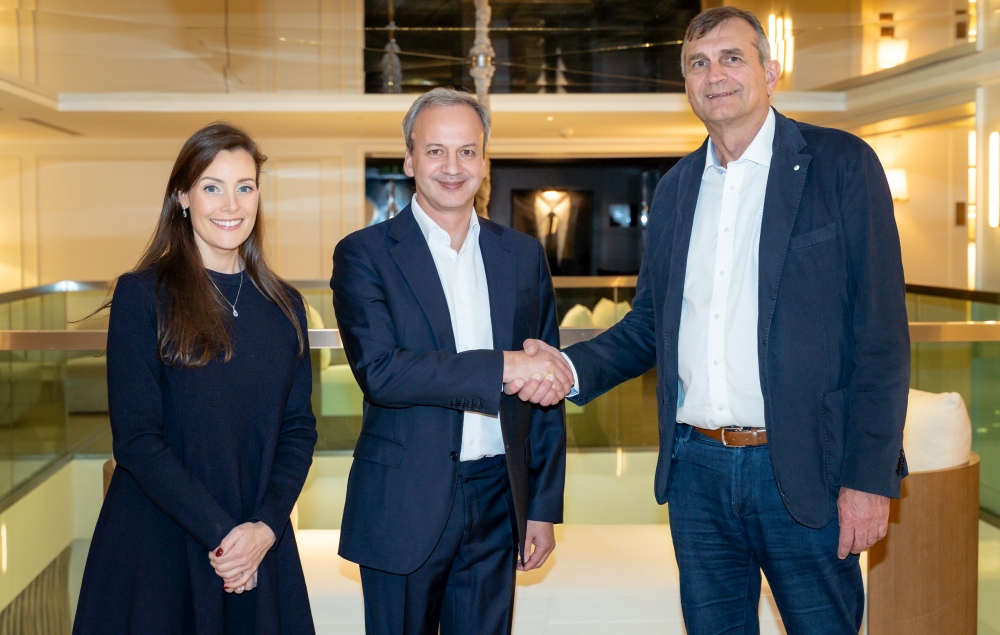
“I do believe that – based on the concept that we have – it will be at least equally important as Rapid and Blitz, but potentially much bigger,” Dvorkovich added.
On the subject of how the rising number of global chess events in a year has an impact on the annual chess calendar, Dvorkovich said that “in an ideal world, we should have agreements with all top events and – like in tennis – put them in a universal tour where every top event will count, but that’s not easy”. The FIDE President expressed a commitment to working with all partners to achieve a future ‘universal tour,’ similar to tennis, where every top event counts, and where a consensus on time control, aligned with the exciting World Cup format, can be reached.
Chess in India
“India is the motherland of chess, and everyone respects that. We always have at least one major event every year in India,” said Dvorkovich.
When asked about the forthcoming World Cup in Goa – one of the longest events planned for this year, lasting nearly four weeks – the President of FIDE expressed his confidence in the All India Chess Federation and the local organisers, saying that progress [on organising this event] is made every day, adding that FIDE has “trust that everything will be fine”.
Another major event towards the end of the year is the Tech Mahindra Global Chess League, which FIDE has a stake in. The event will take place in Mumbai in December. The media-friendly concept of the event has put a new spotlight on chess globally, and Dvorkovich expressed his support for the project, noting that it has become commercially sustainable.
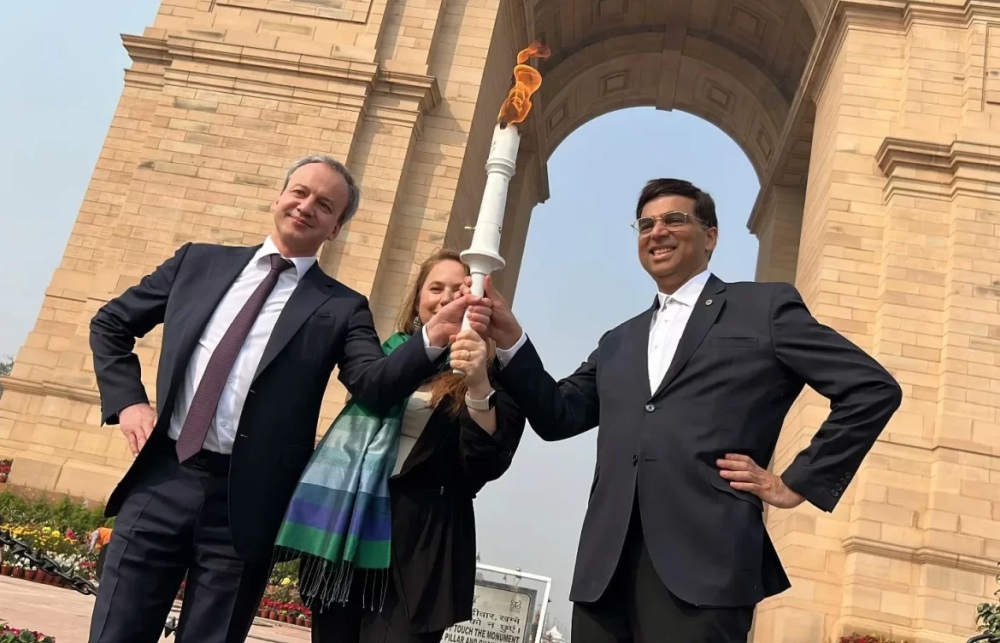
“I think it’s good that two big events are in India [this year]. Doha is also not far away, so it’s convenient [for those players participating in the World Rapid and Blitz at the end of the year]”.
A more competitive approach to wild cards
In recent years, FIDE has refined its approach to the use of ‘wild cards‘ – special invites that ensure the participation of both talented up-and-coming players and chess legends in top world events.
“We always give chances to very young players because we can see their potential. This way, we are showing we are aware of the fast growth of these players. Also, we have it as a rule that we give wild cards to veterans”.
The FIDE President noted that the approach to issuing the special invites has evolved.
“We started using a competitive approach for wild cards, telling players that they can play against each other” to determine who will qualify.
No “farming of rating” to be allowed
Speaking about the recent targeted amendments to the FIDE Rating Regulations, Dvorkovich said that the organisation does “not allow farming of rating” by top players playing against significantly lower-rated opponents.
Acknowledging that such a matchup is possible in an open event or an Olympiad, Dvorkovich noted that “many games like that” clearly suggest “it’s artificial”.
“I think we found a good solution,” said Dvorkovich, noting that the goal of the change was never to prevent any player from qualifying for the Candidates.
On the subject of FIDE rating in general, including in relation to the question of ratings of inactive players, Dvorkovich acknowledged that it is an “extremely difficult” complex system, with opinion polls and discussions showing a deep split in the chess community about any changes.
“When we ask players, normally there is no consensus at all. But most players are not happy about keeping inactive ratings in the system. People do want ratings to reflect the real strength of players,” Dvorkovich said.
From the Year of Social Chess to the Year of Chess in Education
The interview also touched on the social initiatives, which have become one of the key tools in FIDE’s approach to engage the broader, non-professional, chess audience.
“We showed the whole world that chess is a combination of a professional and a social mission to improve society”.
Noting that the Year of Social Chess helped “many governments in the world see the social value of chess,” leading to them starting to provide more support for the game not just on a competitive basis but as a tool for social engagement and levelling.
“Here we are not talking about medals but [about] society. From this perspective, the year was successful. It doesn’t mean we will finish those projects on the 31st of December – we will continue them. For next year, there is already an agreement to have the Year of Chess in Education. The general idea is to bring the attention of governments, chess federations and private investors to the importance of chess in school, at an early age”.
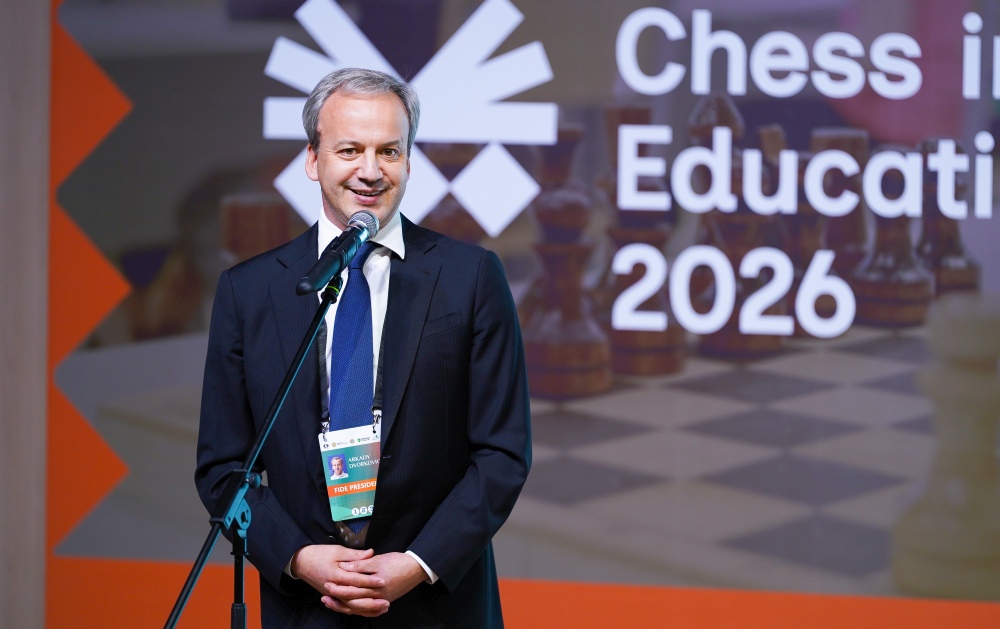
The future of women’s chess
“Women’s chess is one of [FIDE’s] clear priorities,” Dvorkovich said when asked about the subject, pointing out the increase in the number of wild cards for top events given to women. “Every year we are increasing prize funds and organising more tournaments. We have six events in the Women’s Grand Prix; we have a prize fund increase in the Women’s Candidates and the Women’s Grand Swiss. Also, with regard to the Total Chess Tour, we agreed that our partners will continue running their top-level tournament for women”.
Dvorkovich discussed the possibility of having a Total Chess Tour for women only: “Maybe at some point we might have a tour itself for women or, combine it with the Grand Prix. But we don’t want to lose the classic time format; on the contrary, we want to complement it with faster time controls”.
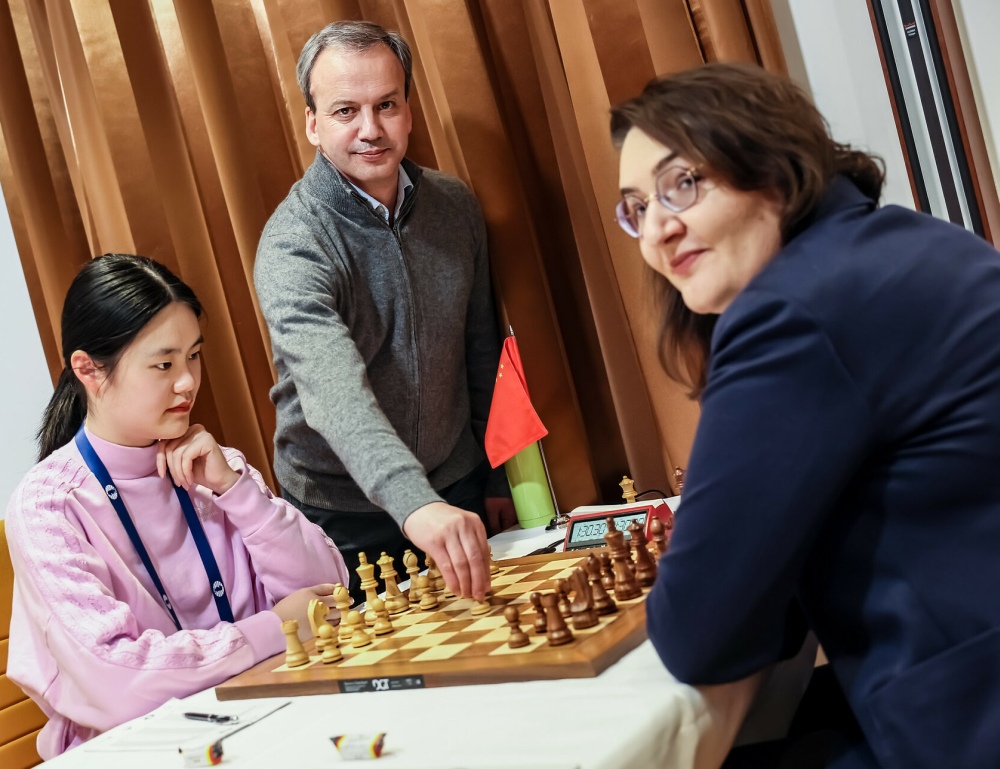
On the state of FIDE and chess
“FIDE is now financially viable, we have more interest in chess than ever, and we have many events. We have a social mission which we are executing. We are trying to work as one team, and anyone who wants to join is welcome,” said Dvorkovich when asked about the state of the International Chess Federation and its future.
Dvorkovich pointed out that diversification of partners is one of the pillars of FIDE’s financial stability under his mandate. “We diversified financing, approaching partners from different parts of the world. We are trying to make our activities really attractive to sponsors, doing events on the highest professional level and I think people appreciate it”.
While acknowledging that mistakes are part of any large-scale operation, Dvorkovich affirmed, “we always learn and are always trying to improve”.
“I am like that and our team is like that,” said Dvorkovich.
The FIDE President concluded by stating: “People cannot deny that I am really in love with chess and involved in all the details, and I can discuss any subject with other professionals. I think that a combination of a professional approach and love for chess is a good combination to serve FIDE.
I really enjoy it. Physically, it’s not easy. Psychologically, it’s not easy. We were not lucky with both the geopolitical events and the pandemic during the two terms, but I think we have shown that we are serving chess well at a level as high as possible for FIDE”.

